Kayarath’s Adventures In Chairs!
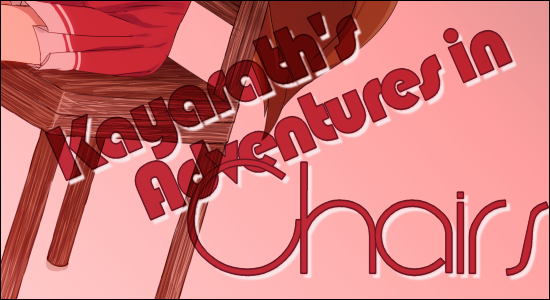
Going to a convention and running one are two completely different things. Have you ever wondered what it was like to be the people directing all the lines, guests, and events? It’s very rewarding and challenging at the same time. I was able to learn a little about the Con Chair life by interviewing Otakon’s Con chairs, Jennifer Piro and Terry Chu. Enjoy!
Kayarath: So what exactly do Con chairs do?
Terry Chu: (bemused laughter) You know; lose a lot of sleep, run around. We are here to guide, we are here to provide some sense of vision to our volunteers, our programs, our guests, and hopefully our members too to put on this event and really just manage the show and bring this to fruition.
Jennifer Piro: We’re here to steer the ship but the ship is being manned by over 800 amazing people that the show would not happen without.
K: Yeah, you really do steer because I noticed that you have tape with arrows in the halls to act like highways to avoid the clusterfrak of people jamming into each other. Is that new this year?
TC: Uh, No. Actually tape has been used on and off for many years. We’re actually very fond of tape at Otakon. We had to stop using tape to curate lines for a few years in most of our hallways. We use to cover all the hallways with tape. It really is a matter of contract and decoration; we can’t use tape everywhere. Our members are amazing and we know that if we lay down a line of tape they will follow it.
K: Well how did you two get to your positions? Getting to a lead a group of over 800 people must be quite a tale.
JP: I’m kinda newer to staff. I joined about six years ago and…
K: Oh, only six years. What a noob!
JP: Yeah, well to compare we have some staffers that have been on staff the entire 20 years. We also have a ton of folks running around with pins on that say how many years they been on staff. There are anniversary pins for five, ten, and fifteen years. We got a lot of folks on staff that have been around for ten or fifteen years so I’m kind of a baby; a noob staffer in comparison.
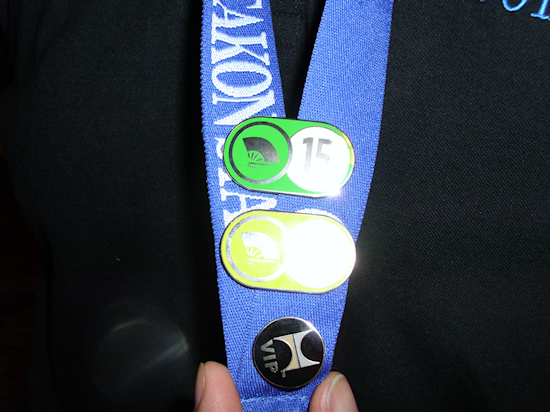
Would you accept a Gabe pin for one those?
When I started the con, I worked in a few different departments. I worked with the Gofer department which is kind of the members that wanna volunteer with us during the con. I worked with Press for a while. And then I was an assistant to one of the con chairs and then I became an associate con chair and I decided I wanted to be more involved with the corporation so I ran for a board position and did some stuff like that. Slowly over time you learn the ins and outs of a convention, you work in a bunch of different departments, you get to know the people who run different things and learn the processes and procedures and then one day people ask you, “hey, do you wanna help out with this?” and you say yes and you try not to look back on that decision.
TC: (laughter) The joke is always, “Oh, you’re a department head. Oh, you’re a convention chair. Ha ha, I’m sorry for you.” But it’s an honor and it is a thrill. I got here because I’ve been on staff for 15 years; this is my 15th year. And I started with running a photo department and then doing publications and then jumping around on the board. It’s a very similar story. You kinda get involved, you take more responsibility, you specifically say, “hey, you know what? I think I can make this better” and you work on it. Get to know more people and you’re asked to do more things. It’s really an organic structure. Our members, our volunteers run by a certain rule; they ran by this rule for a long time which is, “If you come up with an idea, you do it.” And so much of what Otakon is based on that. “Hey, that be really cool!” Okay, show us that we can do it. And you actually just sit down, put everything together, and make it happen. As you start to do that with all the other departments and get to know everything and all the pieces of the convention; eventually they start pointing the finger at you and saying, “Hey, all right, you can run chair, right?” “Okay.” What do you do?
K: It must be a great responsibility.
TC: There’s a tremendous amount of responsibility because all of our volunteers, we are members too. We care very much about what we put together for our members. We care about the safety of our members, how they’re feeling, are they happy, are they enjoying themselves? That’s a very serious responsibility and all of our staff take that very seriously.
K: Uh, wow. Jennifer, you said that you were the head of the board, implying a corporation. Most people don’t associate Otakon with corporation. What’s the corporation for?
JP: So Otacorp is the corporation is kind of like the parent. And they’re responsible for keeping the non-profit running and Otakon is an event that’s held by the non-profit. We also do other events, so Otakon Vegas is under the corporation as well. We work with the Smithsonian and the National Cherry Blossom Festival to do an event during the Cherry Blossom Festival. We done the Otakon Music Festival as a separate event and then the Otakon Matsuri. So basically we have all these things that kind of grown out of Otakon but are all actually separate events run by different people with different needs. So we need kind of a parent corporation to help keep all that running. To keep one voice, to keep things consistent, to help make sure all those different events have the staff they need. That they have the support and they have the materials needed. We have some groups that are corporate like our publication folks (the designers) who are doing all the logos and keeping all the branding and materials. We have some groups that function solely at the convention or at the music festival or at Otakon Vegas. But sometimes you need things that go all the way across and that’s where the corporation really steps in and helps out.
TC: It’s also important to note that when you are a member, you are a member of Otacorp. You’re a member of Otacorp and with that membership, you actually do see an impact on other events. So with Otakon Vegas, Otacorp members can go to Otakon Vegas for a slightly less expensive rate then the normal registration for Otakon Vegas. The same thing was the case for the musical festival. We allow Otacorp members be part of contests, to be part of events, so we try and really give and participate and work with the members all through out the year. Otakon is just the headliner of all of that.
K: You have other events like Otakon Vegas. How’s that going along?
TC: Otakon Vegas is coming along great. The minute Otakon is done, we really go into high gear with Otakon Vegas. I can gleefully say that I am not responsible for Otakon Vegas. There are other individuals that are in charge and putting all of that together. I’m looking forward to seeing how that show comes out. It’s coming along wonderfully though.
K: Well if the rule is, “ If you come up with an idea, you do it.” Who thought of Otakon Vegas?
TC: That is a long enough story that’s it’s gonna be hard to encapsulate it. What we can say is Otakon has grown to a size and Otacorp had grown to a size where we realized that we have the opportunity and the need to spread out. That’s why we have all these other events. So several times other cities have been tossed out as ideas. You’d say, “maybe we can do a satellite convention? Another show.” It’s really just a matter of opportunity knocks and we said, “all right, let’s look at this seriously. Maybe this can work.”
JP: We can do a lot of really cool things at Otakon but at the same time we don’t have any one event where 30,000 plus people can attend. So every time we do something really cool, a lot of people get to do it but a lot more people get left out. And there is some really great ideas on the table that just logistically don’t work. So an event that’s only for a hundred people; you know that means 29,900 people don’t get to go. That’s concerning. We want as many people to experience as many things as we can. When we started talking Vegas we said, “Well if we had a newer event and we started off small we could do a lot of really cool small, individually focused things; more workshops, more hands on things that we just can’t do at Otakon. Wouldn’t it be great if we had a room to do X?” Right now we don’t have any extra room at the Convention Center. It kinda spawned out of that and we really debated it and it was a joke for a long time like, “oh, we should do this.” and like Terry said, the opportunity came along and we said, “now… we really should do this.” We wanna promote the culture; let’s go further. Let’s go west young man and try something new. So we’re gonna try.
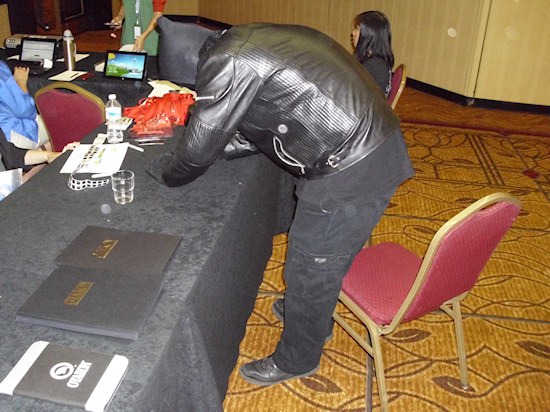
Also crowding the Otakon halls, our very own DJ Knightshade!
K: That would explain why I feel so overcrowded in those hallways. You guys get that too?
JP: There’s a lot of people here this year.
TC: We understand. We feel everybody’s pain and how busy and how popular Otakon has become and we do everything we can to try and mitigate the situation but we feel it. We hear you.
K: One of the advantages of having so many people is that it generates a lot of money, at least two million by my count. Where does it all go?
TC: Have you looked at the convention center, the hotel, and the arena? If you look at the operating cost for a concert, for two concerts, for actually four concerts. It’s two concerts with two headliners each. You have the masquerade. You have all of our programming. The hot water that we use for the tea ceremony panel cost money. I sound like I’m being snarky but I’m really not. If I drew up a list of everything that we do and how much it cost, it probably would make most eyes boggle. Every penny of the membership fees goes back into running Otacorp. The massive bulk of that goes right into Otakon.
K: I imagine if this budget was laid out, it would take over this table and then some. (note: I’m talking about a large meeting room table. It would be at least sixty pages long)
TC: Yes.
JP: It does. It’s a huge, huge spread sheet and we fight about every penny. Because not only is it all the folks who stood in line’s money, it’s our money too. Because for all of us to be members, we had to pay our dues as well. Especially those of us that are voting members of the corporation, we have to keep up with our dues so if the prices go up, we pay it too. We are members first, and then staff second. So we feel it too and that’s why we argue over every penny we spend and we try to negotiate and get all the discounts we can get but things are expensive. You start hiring on the extra security that patrols things and getting more police on scene that we have outside and getting water inside the convention center and outside the convention center. Just the cost of printing badges alone, and program books, full color program books. We know are a big souvenir for people so we wanna make sure they have something nice. All those things, man. The bills just start adding up. It’s very expensive to run a convention. Anybody who’s thinking of running one, you should really go to a few, sit down and have conversations with people about how much it actually costs to run these things.
TC: And what’s really amazing is if anything ever goes wrong with this, our volunteers, and we’re all volunteers, myself included, we can be held liable for the costs.
K: Oh yeah. A few cons when down when something bad happened.
TC: That’s right. I’m not Bruce Wayne. I’m not independently wealthy.
JP: That’s why we’re all very careful with our money and very cognizant of the situation. We never want to overextend ourselves. We have a lot of very heated debates about making sure we are good stewards of our money; because it’s our money too.
K: You do spend it well. For example, getting Yoko Kanno to come can’t be cheap. Isn’t she super exclusive or something?
JP: Kanno-san is an amazing composer and performer. She’s amazing. You should look up the flights, just the flights, to and from Japan right now.
K: Sadly, it’s the end. So many questions, so little time. Can I get a few pictures before we go?
JP and TC: Sure.
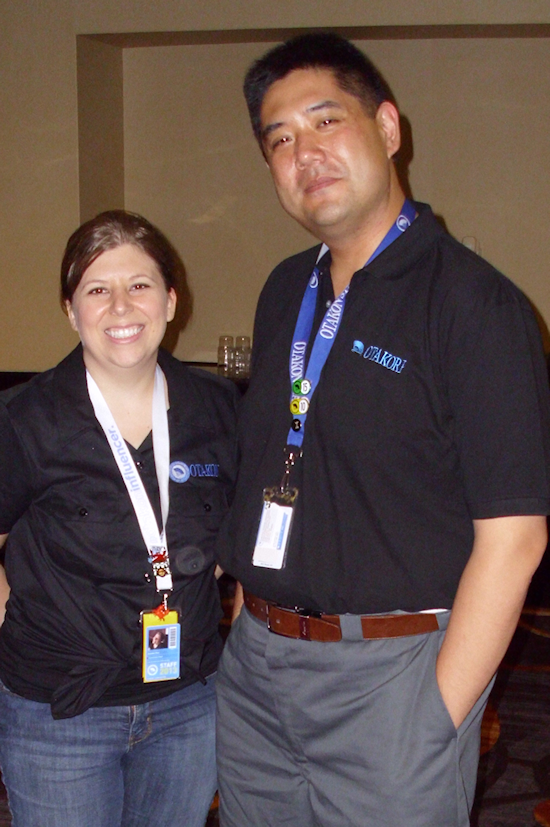
I should have asked them to strike Sentai poses…
K: Thank you very much.
JP: No problem. Thank you very much.
TC: You’re welcome.
It was a real treat to interview them. I always do enjoy learning more about how conventions are run so I was glad to get some opinions from people who actually been in the game awhile. Sadly, con chairs tend to be busy people so my time with them was all too limited. I which I had another opportunity to pick their brains and get more insight into the con staff life.
Luckily for me there was! As with many anime conventions, the last event is a wrap-up/feedback panel where anybody with a badge can resister their complements and complaints to all the departments heads directly. One of the main issues is the size of Otakon versus the size of the Baltimore Convention Center. There was over a thousand hours of programming. Attendance this year clocked in at over 34,000 people. That is an increase from last year. I thought Otakon basically hit the growth ceiling last year but I was dead wrong. The thing is, they still have a desire to expand. That is awesome but also frightening. While bigger is better, there simply isn’t enough room for everybody. There were so many people wanting to get in to events, lines formed up to get into the official line for an event. There were lines to get in line!
In order to combat this problem, Otakon announced that they will be moving to Washington D.C. starting 2017. I was relieved when I heard that. While Baltimore’s Inner Harbor is very visitor friendly, The Baltimore Convention Center simply isn’t big enough anymore. The new location in Washington is much larger, meaning (hopefully) that a lot of problems will dissipate since lack of space was the root of many issues.
Of course there was miscellaneous complaints like a rude staffer or misinformation. That’s to be expected. I did get the feeling that this Otakon was less organized than usual. I think this had to do with the fact that their server crashed and their office got flooded a week before the con. That tends to be disruptive so I’m willing to cut them some slack in that regard. It still ran largely smoothly in many expects, except for the rave. I’m not a rave person so I did see any of this myself. However, multiple people brought concerns regarding a general lack of security there. It seems that people gathering in circles to watch someone break dance were being cracked down on while drug dealers and teenage girls getting grinded on without consent were largely ignored. This is bad; and not in the “Elk didn’t get Istalk up today” bad but Bad Bad. Now that the department heads heard of this, I hope (and assume) that they’ll take proper precautions to ensure it doesn’t happen again.
To their credit, they did take their lumps and took the time to listen to everyone’s concerns. I’m serious about that last part. They stayed around for 2 extra hours to listen to everyone’s questions. Being the Sunday afternoon of a con weekend, everyone was packing up to leave at that time. As soon as it was done, we had to immediately leave the building. They are serious about listening to feedback. Terry Chu, in particular, was adamant in telling us to be vocal about our complaints. He constantly repeated the need for con goers to report any problems as loud and specifically as possible. That’s a good call and I would like to register an issue. If you’re so freakin’ dead set on receiving feedback, please state it on the website somewhere. An online guide to providing feedback could be very helpful since it’ll inform people of the why and how of providing it.
What a lot of people gave feedback on was the Yoko Kanno concert. The two camps boiled down to, “man, the concert was totally awesome!” and, “man, it was totally lame that I couldn’t get into the concert!” Since demand to get into the concert was so high, you had to get a separate ticket to attend it. While there was no additional cost to obtain a ticket, you did have to go through all the other people who also wanted a ticket, and there was a lot of them. It seems some people even flew cross-country just to see Yoko Kanno! I hope they got in at least. It’s yet another case of demand far outstripping supply. Yoko Kanno’s Piano Me concert was designed to be a intimate experience; designed to be done in front only two hundred people. If I was running a large con and I heard that number, I would laugh in shock. I would then say, “so… a knife fight tournament to decides who gets to attend?” The Otakon staff’s reaction to that was to add a zero to the end of that number. Sadly, she didn’t do a panel either but she did find time to squeeze in two small autograph sessions. It seems she spend most of her time practicing for the concert itself. I didn’t attend the concert because I didn’t even want to try getting in. Sometimes it’s just not worth the fight.
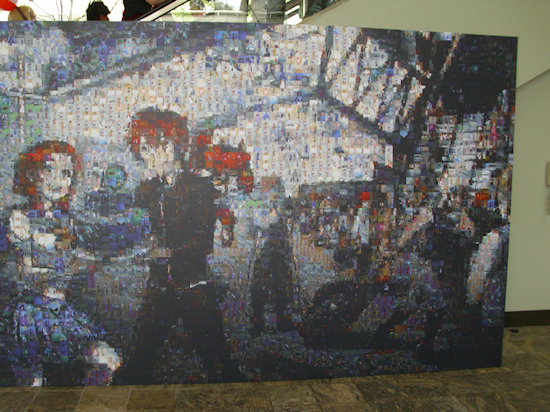
How many cons have something like this?
Otakon is always worth it though. It is the biggest convention of the east coast and it does things no other con can. How many cons have sign language interpreters for all the deft people attending (That was new this year and I hope they keep that up)? Even if sixty thousand people tried to cram in the Baltimore Convention Center, I would still be one of them. If you want to know more about Otakon, we got plenty of coverage right here! You can also follow @OtakonConChairs, @jenniferpiro, and @LookingAtChu on Twitter. See ya at the next Otakon!



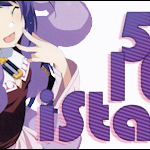
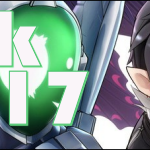

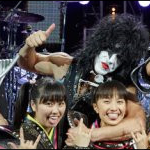









iStalk? uStalk!